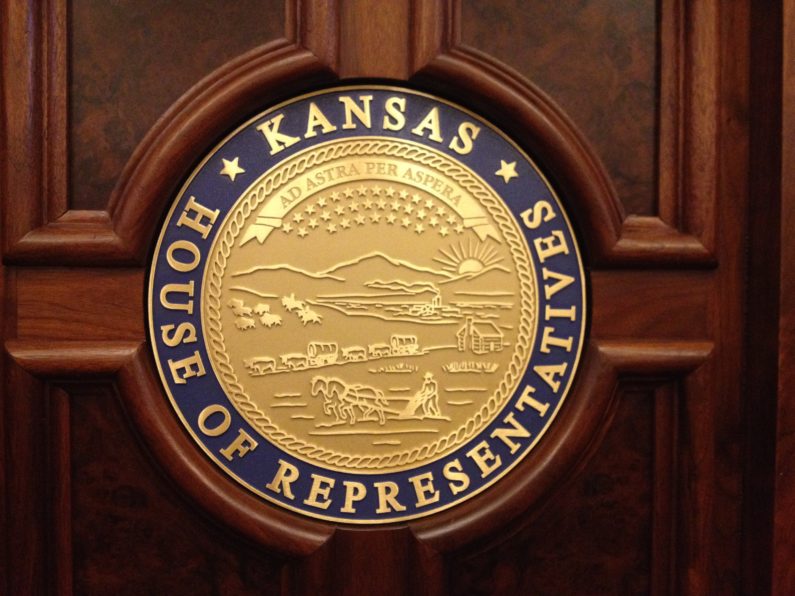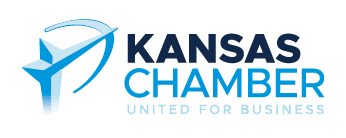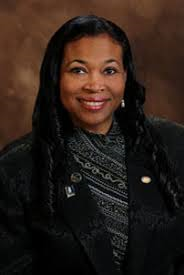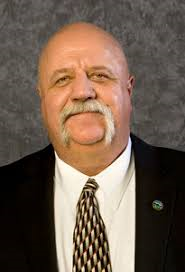Good morning everyone:
It was a heck of a week leading up to the opening of the 2020 legislative session.
We have a deal on Medicaid expansion. Mike Pompeo says he’s not running for the U.S. Senate. And candidates are reporting raising oodles of money (more on that when we have a complete accounting of finance reports).
Now we get down to business starting Monday. Let’s waste little time and kick things off with the significant stories we published with other news you may have missed but need to know from the last week….
- Gov. Laura Kelly and Senate Majority Leader Jim Denning announced they reached a deal on Medicaid expansion, raising hopes that something will pass this year.
- The House Republican campaign committee set a new record for fundraising in an off election year.
- Gov. Laura Kelly announced plans to bring social services under one agency.
- Democratic state Sen.Barbara Bollier announced raising more than $1 million for her race for the U.S. Senate.
- Democratic Topeka Mayor Michelle De La Isla announced her bid for the 2nd District congressional seat.
- Democratic state Rep. Dave Benson introduced legislation that would bring more transparency to police shootings. The legislation was brought in response to a 2018 police shooting in Overland Park.
- The longest-serving state appeals court judge is retiring.
- Senate President Susan Wagle hired a new legislative director.
- Former television meteorologist Mike Thompson was named as the replacement for Mary Pilcher-Cook in the state Senate.
House Democrats set new fundraising record
The Democratic House campaign committee reported setting its own off-year election record in pulling in almost $130,000.
The finance report, filed Friday, shows more money raised in an off-year election than in any other non-election year in recent history, said Heather Scanlon, chief of staff for the House minority leader.
Democrats raised more funds last year than in 2015 and 2017 combined, Scanlon said.
This report represents the first time House Democrats have raised more than $100,000 in a non-election year in more than two decades, she said.
She said the amount breaks records as far back as available online data show.
“I am thrilled at the amount of money we were able to raise last year,” House Minority Leader Tom Sawyer said in a statement.
“This is such an important election year for the state of Kansas. On the House side, we only need to flip one seat to break the Republican supermajority. We worked hard all year and kept at it. This is an incredibly strong start to 2020.”
During the last off election year in 2017, the House Democratic caucus raised $51,582 and in 2015, it brought in $70,491.
The House Democrats’ announcement comes after the Republican House caucus filed a report showing it had raised $209,000 last year.
It was the first time party leaders say that much was raised in an off election year.
The Republican House Campaign Committee, which underwent a change in leadership last year, reported raising about 30% more than the $161,650 taken in during the last off election year in 2017.
It was more than double the $81,855 raised in 2011 when conservatives gained control of the House and Sam Brownback was in his first year as governor.
Limiting local government lawsuits
The Kansas Chamber of Commerce last week introduced its legislative agenda for 2020, including support for a bill that would limit the ability of local governments to hire attorneys to bring class-action lawsuits.
It is anticipated that a bill will be introduced this session restricting local governments from bringing lawsuits for damages that might be tied to corporate misconduct without the approval of the attorney general.
The legislation would come at a time when local governments are suing oil and gas companies over climate change, drug manufacturers for opioid abuse and, most recently, producers of vaping products.
The business community contends that the growth in the number of municipal lawsuits affects states’ ability to reach global settlements, undermines their regulatory authority and exposes companies to speculative claims.
It also argues that the lawsuits hurt the ability of state attorneys general to represent the state’s interests in litigation.
“The spiraling number of affirmative municipal lawsuits may lead to outcomes that undermine the fair and impartial legal system,” the U.S. Chamber of Commerce recently wrote in a white paper.
“This includes delayed settlements, crippling litigation costs for defendants, usurped state power, and a diversion of consumer compensation,” the organization said.
“More broadly, the legal system is distorted. When the normal barriers to accessing the legal system are lowered, more meritorious cases are given equal weight to speculative claims.”
A bill like that is likely to draw opposition from local governments.
Erik Sartorius, executive director of the League of Kansas Municipalities, said cities would generally not believe it is appropriate to substitute local government decisions with a state official who may not be as familiar with the issues.
New antidiscrimination battle ahead
A bill has been introduced in the Kanas Legislature that would outlaw discrimination based on hairstyle.
The bill, sponsored by Democratic state Sen. Oletha Faust-Goudeau, is modeled after legislation signed into law in California last year.
Two other states — New York and New Jersey — have passed similar bills.

The laws came after a couple of highly publicized cases where people were singled out because of their hairstyle.
In 2018, a 6-year-old in Florida was not allowed into a school because of his dreadlocks, more commonly known as locs.
In another case from New Jersey, a high school wrestler was not allowed to compete until he cut his dreadlocks.
In Alabama, a woman asked the U.S. Supreme Court to rule on litigation that stemmed from a company’s refusal to hire her because of her hair style.
The lower courts found for the company, and the Supreme Court ultimately decided not to hear the case.
The Kansas bill amends the definition of race in state law to cover “traits historically associated with race, including, but not limited to, hair texture and protective hairstyles.”
The bill defines “protective hairstyles” as braids, locs and twists, among others.
The bill is intended to prevent discrimination against hairstyles that are natural to African Americans but are seen by some as “unprofessional,” said Michele Watley, founder of Shirley’s Kitchen Cabinet, a Kansas City organization that advocates for African American women.
The group is named after Shirley Chisholm, the first African American woman elected to Congress and to run for president from one of the two major political parties.
“Natural hair is often seen as unclean, unkempt, unprofessional and because of that perception, what you find is that people are then facing consequences in the workplace and in schools,” Watley said.
“What this bill hopefully will do is essentially codify and articulate the need to change policies regarding natural hair and that it is not deemed as unprofessional.”
The bill protecting hair styles comes after a Kansas law was enacted in 2018 that outlawed state and local governments from banning individuals from wearing tribal regalia or objects of cultural significance at public events.
It also comes at a time when legislation that would add sexual orientation and gender identity to state’s antidiscrimination law has had trouble getting any traction in the Legislature.
State not liable for lawmaker crash
The state of Kansas is not liable for state Rep. Michael Houser’s car crash that occurred in 2017 on his way home from Topeka.
The Kansas Court of Appeals last week upheld a lower-court decision that found in the state’s favor because Houser was “not within the scope of his employment during his drive home” to Columbus on Feb. 24, 2017.
Houser had left Topeka on the morning of Feb. 24 after eating breakfast. He took his usual route home and only stopped to use the restroom and get refreshments.

En route, Houser crossed the center line and struck a vehicle, court records show. James Long was injured in the collision.
Long argued the state was liable for Houser’s negligence because the legislator was within the scope of his employment at the time of the collision. Houser was reimbursed for his travel on the day of the crash.
Based on the facts in the case, the appeals court found that Houser could not have been within the scope of his employment as a legislator when he drove home.
The court said the case centered on how much control the employer had over the employee while he was traveling.
“Here, the State exerted minimal control over Houser during his travels,” the court ruled.
“Long is correct that Houser had to live in his district and be present in Topeka to work, but those requirements do not control how Houser travels between the two locations.”
The appeals court panel noted that Houser had the choice of leaving the same day the session ended, or he could have stayed all weekend.
“He had complete discretion on when he would leave Topeka.”
Vic Miller update
Democratic state Sen. Vic Miller is asking that his drunk-driving charge be dismissed, saying he wasn’t drinking the night police found his crashed vehicle last May.
WIBW reports that Miller argued in a court motion that police did not have probable cause to arrest him.

Citing the court motion, the television station reported that Miller’s speech was coherent and he didn’t have difficulty communicating.
The motion said that a police officer did not put Miller through field-sobriety tests at the scene, although the senator indicated he would agree to them, the television station reported.
Miller is now considering whether to run for a full term for the state Senate seat previously held by Gov. Laura Kelly.
He could face a Democratic primary from Topeka pastor Tobias Tobias Schlingensiepen, who has filed paperwork appointing a campaign treasurer.
KPI poll
The Kansas Policy Institute last week released a poll showing what Kansans think about everything from revenue shortfalls to property taxes to Medicaid expansion.
The poll of 519 registered Kansas voters found that 55% want any revenue shortfalls addressed by spending cuts, 56% opposed Medicaid expansion and 75% want more transparency about property tax increases at the local level.
The poll was done by SuveyUSA from Dec. 10 to Dec. 14.
Kansas legislative session
KCUR’s Steve Kraske offers this preview of the upcoming legislative session, featuring House Speaker Ron Ryckman Jr. and University of Kansas political scientist Patrick Miller.
In his first public comments on the issue, Ryckman said the Medicaid deal struck between Gov. Laura Kelly and Senate Majority Leader Jim Denning “probably wouldn’t be something” he’d support.
While the bill might have a majority of support in the House, it’s likely not to have support from a majority of GOP House members, he said on Kraske’s “Up to Date” show.
He also addresses the proposed constitutional amendment aimed at reversing a state Supreme Court decision that found the right to an abortion is protected by the state constitution.
Ryckman said it’s a No. 1 priority this session. He also gives a preview about how the language in the proposed amendment might be worded.
Abortion news
With abortion expected to be one of the major issues this legislative session, here’s a wrap of what is expected nationally on that front this year, including coverage from CNBC and CNN. Also, this story from Boise State Public Radio that examines abortion reversal laws in Utah and Idaho and the University of California study that suggested the process is risky.
Reamortization: Chapter II
Gov. Laura Kelly last week revealed her plans to restructure payments into the state retirement system, a reprise of her unsuccessful effort to do that last year.
The Associated Press reported that the plan would add 10 years to closing a long-term funding gap in the state pension system at a cost of $4.4 billion. The plan could free up millions that could be put into taxpayer service.
Last year, the House killed the governor’s plan for lowering the state’s contributions into the retirement system by stretching out the long-term payment schedule over 30 years at a cost of more than $7 billion.
Here’s more coverage of the governor’s announcement from the Topeka Capital-Journal and The Eagle/Kansas City Star.
Pompeo roundup
By now, former U.S. Secretary of State Mike Pompeo’s decision not to run for the U.S. Senate in Kansas seems so 1990s.
Nevertheless, here’s the latest national reports about how his absence from the race affects the chance for Democrats (spoiler alert: it helps them).
Here’s coverage from Roll Call, The Associated Press, Cook Political Report and CNN.
Kobach also told Morning Consult last week that he thinks a Republican will win the Senate race regardless of the outcome of the primary.
Meanwhile Congressman Roger Marshall issued his own guarantee to Morning Consulting, predicting Kobach would lose the Senate race if he advances.
And here’s McClatchy’s latest take on the Republican primary for the Senate race.
And here’s Roll Call’s coverage of Marshall’s announcement that he raised $250,000 in the immediate aftermath of reports that Pompeo wouldn’t run for the Senate.
Judge Jack replacement
A nominating commission has recommended three people to replace Judge Jeffry Jack on the 11th Judicial District bench.
Gov. Laura Kelly will select from Parsons lawyer William Adamson, Magistrate Judge Samuel Marsh and Pittsburg lawyer Steve Stockard to replace Jack.
She has 60 days to decide who will replace Jack, who retired Jan. 2. Jack accepted a position as area director for Big Brothers Big Sisters of Douglas County.
Last spring, Jack’s nomination to the Kansas Court of Appeals was derailed when his angry Twitter posts directed at conservatives were revealed.
The 11th Judicial District is made up of Cherokee, Crawford, and Labette counties.
Senate District 7 race happenings
Former U.S. Attorney Barry Grissom is backing Democrat Ethan Corson in the primary race for Senate District 7 against state Rep. Stephanie Clayton.
Grissom praised the former executive director of the Kansas Democratic Party for leading the party “through its most successful election cycle in a decade.”
“I witnessed Ethan’s commitment to our Party first-hand,” Grissom said in a fundraising email for Corson.

“From Johnson County to Garden City, from Colby to Pittsburg, and everywhere in between, Ethan has traveled the state, carrying our banner, building county parties, recruiting and training candidates, and raising funds.
“That is what it will take from our leaders to continue our momentum,” Grissom wrote.
Grissom was a candidate for U.S. Senate before state Sen. Barbara Bollier jumped into the federal Senate campaign.
Meanwhile, Roeland Park Mayor Mike Kelly has given his support to Clayton for her work on the environment.
“I appreciate that she is a constant advocate for wind energy and solar energy and really those kinds of solutions that stand to make Kansas a game changer,” he said in a video.
“Through her effort in the House, Kansas has become one of the largest wind producers in the nation and Kansas’ portfolio of wind energy is, as a percentage, greater than any other state in the country, and that’s only going to continue when we have advocates like Stephanie in the Senate.”
War Powers vote
Here’s coverage from how the Kansas Congressional delegation voted on a nonbinding resolution calling on the president to seek congressional approval before undertaking military action in Iraq. The delegation’s vote followed party lines with the Republicans opposed and the lone Democrat, Rep. Sharice Davids, voting in favor.
Tebow guest speaker
Former Heisman Trophy winner Tim Tebow will be the guest speaker at Kansans for Life’s annual Valentine Banquet in Overland Park next month.
Tebow, who played for four NFL teams and is now playing baseball in the New York Mets’ system, will be the guest speaker at the event at the Overland Park Convention Center on Feb. 11.
Tebow made a buzz off the field in in 2010 when he was featured in an anti-abortion ad paid for by Focus on the Family that was broadcast on Super Bowl Sunday.













